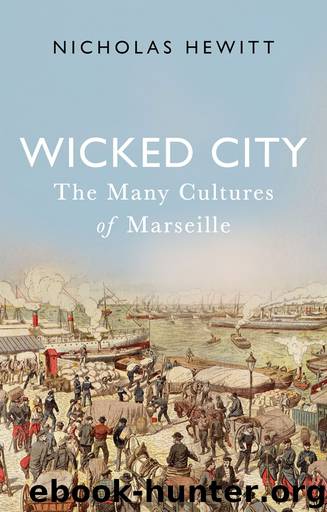Wicked City by Nicholas Hewitt

Author:Nicholas Hewitt
Language: eng
Format: epub
Publisher: Hurst
Published: 2019-03-15T00:00:00+00:00
‘Les Cahiers du Sud’
Les Cahiers du Sud (both ‘Notebooks of the South’ and ‘Southern Journal’) constitutes one of the great success stories of French literary review production in the twentieth century. With a span of over forty years, the journal was one of the longest lived publications in what is a notoriously ephemeral field, surviving and outstripping French contemporaries like the Nouvelle Revue Française and Europe. Under its editor, Jean Ballard, it was also one of the most influential literary and cultural periodicals of twentieth century France, not merely in the area of contemporary poetry, which remained its mainstay throughout its career, but also in broader literary and intellectual concerns. It was not merely ‘the test-bench of French literature’,7 in André Malraux’s words, but a genuinely international review in its subject-matter and wide range of contributors. Above all, it constitutes a unique case in French periodical publishing as ‘the only provincial long-running review which could be listed amongst the great French reviews.’8 As Paul Chaulot wrote in Esprit when Les Cahiers finally closed in 1967, ‘thus disappears at the end of a half-century of activity, a collective enterprise which is unparalleled in the literary annals of our era.’9
The history of Les Cahiers du Sud comprises three stages of development.10 Beginning its life as Fortunio, founded by the young Marcel Pagnol and his friends from the Lycée de Marseille, the first number appeared in 1914, followed by three more until the outbreak of war. It was essentially a student poetry magazine, but possessed of a sense of ambition and an embryonic organisation which was to serve it well in the future. After the war, Pagnol and the original team launched a second series in 1920, which ran for only five issues, before a third series came on the scene in 1921. It was this third series which evolved into Les Cahiers du Sud with its virtually unbroken run from 1921 until the final number of the journal, in 1966. The new Fortunio was underpinned both by a firmer financial base and by a more elaborate organisation, due in part to Pagnol’s ambition to transform it into a journal of national importance and, fortuitously, to his absence from Marseille from 1922 onwards. With Pagnol in Paris, Fortunio fell under the effective control of Jean Ballard, who had joined the team for the fourth number of the original series and who was to run the journal virtually single-handed until the end. After two years, from 1922 to 1924, when it appeared every two months, the review settled down into what was to become until the Liberation its established monthly format, although, crucially, its title changed, reflecting the new editorial power structure. From 1924 to 1925, the main title was still Fortunio, with a sub-heading Les Cahiers du Sud; in 1925, the main title became Les Cahiers du Sud, with the sub-title as Fortunio; and in 1926 Fortunio vanished altogether, leaving only Les Cahiers du Sud. Although the staple product of the journal remained
Download
This site does not store any files on its server. We only index and link to content provided by other sites. Please contact the content providers to delete copyright contents if any and email us, we'll remove relevant links or contents immediately.
| Africa | Americas |
| Arctic & Antarctica | Asia |
| Australia & Oceania | Europe |
| Middle East | Russia |
| United States | World |
| Ancient Civilizations | Military |
| Historical Study & Educational Resources |
Marie Antoinette by Stefan Zweig(1201)
A Little Tour In France by Henry James(1066)
The Cartiers: The Untold Story of the Family Behind the Jewelry Empire by Francesca Cartier Brickell(1001)
1000 Years of Annoying the French by Stephen Clarke(1000)
The Nostradamus Prophecies by Mario Reading(988)
Life in a Medieval City by Joseph Gies; Frances Gies(924)
Twenty Years After (Wordsworth Classics) by Alexandre Dumas(890)
The Seine by Elaine Sciolino(876)
the Nostradamus Prophecies (2010) by Reading Mario(864)
The Last President of Europe by William Drozdiak(848)
0805097341 (N) by Andrew Dickson(844)
Secret Societies by James Wasserman(842)
The Dynamite Club(830)
The Greater Journey: Americans in Paris by David McCullough(790)
El Enigma Sagrado(782)
Rick Steves Italy 2020 by Rick Steves(782)
The Private Lives of the Impressionists by Sue Roe(768)
Montaillou by Emmanuel Le Roy Ladurie(754)
1922132403 (N) by Peter Seymour(749)
